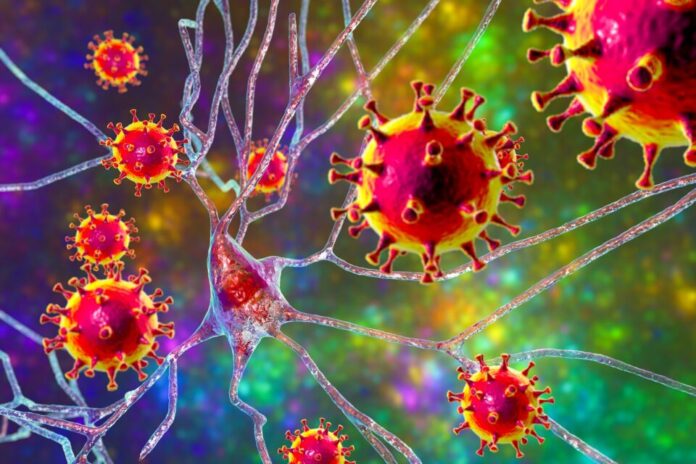We always talk about how the coronavirus affects the body, but let’s take a deeper look at how it can affect the brain. Unfortunately, months after contracting COVID-19, many people struggle with memory problems, mental fog, and mood changes. One reason, this virus can cause long-term harm to the brain.
“A lot of people are suffering,” says Jennifer Frontera, a neurology professor at the NYU Grossman School of Medicine. She led a study that discovered more than 13% of the hospitalized COVID-19 patients developed a new neurological disorder shortly after being infected. In addition, a follow-up study found that six months later, about half of the patients in that group who survived were still experiencing cognitive problems.
Monkeys’ Brains Offer Insight
There’s new evidence that the virus may also directly infect and kill specific brain cells in monkeys. According to Geidy Serrano, director of neuropathology laboratory at Banner Sun Health Research Institute, studies of brain tissue suggest that COVID-related changes are subtle. “Anything that affects the brain, any minor insult, could be significant in cognition.” When the pandemic first began, a team understood how the virus infected the animals’ lungs and body tissue. John Morrison, a neurology professor who directs a research center, suspected that the virus could also infect an organ that hadn’t received much attention. “Early on, I said, ‘let’s take the brains,’ ” he says. “So we have this collection of brains from these various experiments, and we’ve just started to look at them.”
One of the researches caught the attention of other scientists. “It’s very clear in our monkey model that neurons are infected,” says Morrison. The monkey’s brain can give insight since they are a close relative of humans and are easier to study. Lastly, scientists know precisely how and when each animal’s brain was infected. However, the monkey model isn’t perfect. For instance, COVID-19 can produce milder symptoms in monkeys.
Another interesting fact was that the infection was prevalent in monkeys with underlying health issues, such as diabetes. This evidence suggests that they are just like us regarding this virus. The infection appeared to start with neurons connected to the nose in the monkeys. Morrison says that the virus had spread to other areas in the brain within a week. “This is where you get into some of the neurologic symptoms that we see in humans,” he says. “I suspect that the virus is in the regions that mediate those behaviors.”
COVID-Related Threats to the Brain
The current COVID-related threats to the brain include bleeding, blood clots, inflammation, oxygen deprivation, and the protective blood-brain barrier disruption. Some researchers found evidence that the virus infects human brain cells. A study on brains from 20 people who died of COVID-19 found that four contained genetic material indicating infection in at least one of the 16 areas studied. “There’s a nerve that is located right on top of your nose that is called the olfactory bulb,” Serrano says. This could provide a potential route for viruses from the respiratory system to the brain.
Serrano stated that the virus appeared to be able to infect and kill nerve cells in the olfactory bulb, which may explain why many COVID patients lose their sense of smell. In other brain areas, though, the team found less evidence of infection. Studies prove that the coronavirus infects the cells that line blood vessels, including the ones that travel through the brain. Therefore, when the immune system could inadvertently kill nearby neurons and cause neurological problems, Serrano says.
Researchers all agree that regardless of how COVID-19 works, it can present a serious threat to the brain.





